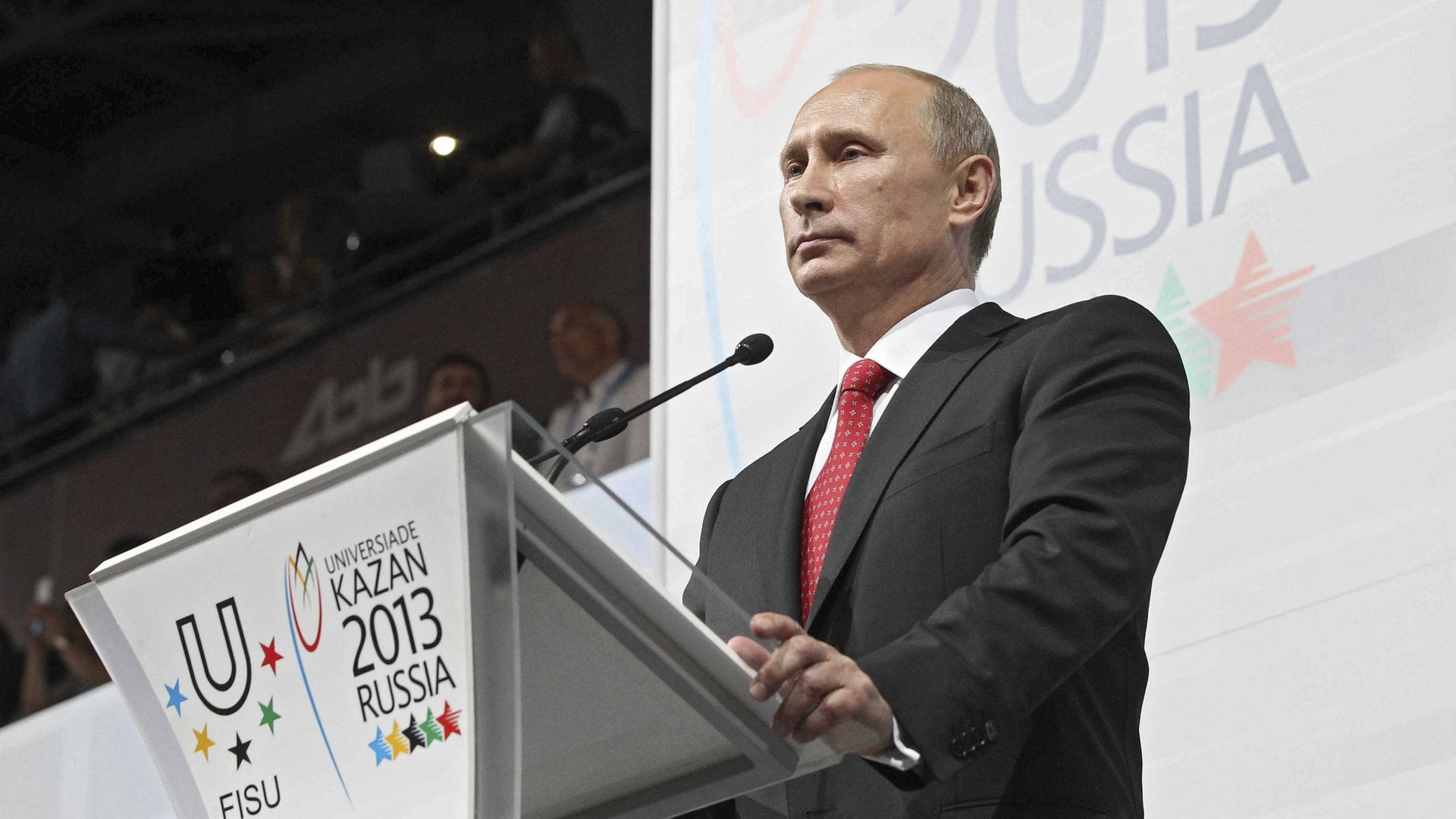From Snowden, Putin gets a rare reprieve from unremitting opprobrium
What a difference a day makes for Russian president Vladimir Putin.


What a difference a day makes for Russian president Vladimir Putin.
For the last 24 hours, he has been an international punching bag over the posthumous conviction of Sergei Magnitsky, an attorney-whistleblower who died in 2009 after a year of torture and denial of medical treatment in prison. To explain the Orwellian world of Putin, critics and analysts reached back to Stalin and even further—to the Cadaver Synod of 897, in which the corpse of Pope Formosus was put on the stand to face trial for conspiracy.
But today, the most famous fugitive on the planet—Edward Snowden—announced that he has officially sought temporary asylum in Russia. By seeking refuge in Russia, Snowden offers Putin a chance to peacock as a safe hand when it comes to those who claim to be politically misunderstood. That is a welcome gift since Putin—not to mention Russia and the Soviet Union before that—is more famous as a person whom the famous and the not-so fight to get away from.
It is not a categorical PR triumph for Putin—after all, many outsiders have sought refuge in Moscow in prior decades only to regret it. Yet Snowden is not entirely an outsider—South American nations are sympathetic with him, and they (along with Europeans) are furious with the US over the revelations of international spying that he disclosed. Among them, Bolivia, Nicaragua and Venezuela have offered sanctuary to Snowden, and he said he wants to stay in Russia until he can figure out how to get to one of them.
Putin’s spokesman, Dmitry Peskov, says the government has not yet received the asylum request, and referred to a July 1 statement from the Russian president: “There is one condition if he wants to remain here,” Putin said at the time. “He must stop his work aimed at damaging our American partners.” Speaking today with a couple of human rights activists at Moscow’s Sheremetyevo Airport, Snowden responded, “No actions I take or plan are meant to harm the US. … I want the US to succeed.”
But there is more good news today on the PR front for Putin: The UK government has decided not to allow a public inquiry into one of the most notorious murders of the last decade—the grisly 2006 nuclear poisoning of KGB defector Alexander Litvinenko.
The decision, announced today by a state-appointed coroner, relieves Putin of renewed public opprobrium over Litvinenko’s slow death. No single incident over the 13 years of Putin’s rule has so undermined his reputation as the murder of Litvinenko, an outspoken opponent of the Russian leader. It led to a long diplomatic rift with the UK, which publicly implicated the Russian state, and bristled that the killing was carried out on British soil.
Robert Owen, the coroner, said that Home secretary Theresa May has denied his request for the public inquiry. Instead there will be a private inquest that excludes evidence of the involvement of Russian security agencies. Therefore, there can be no outcome that officially blames the Russian state.